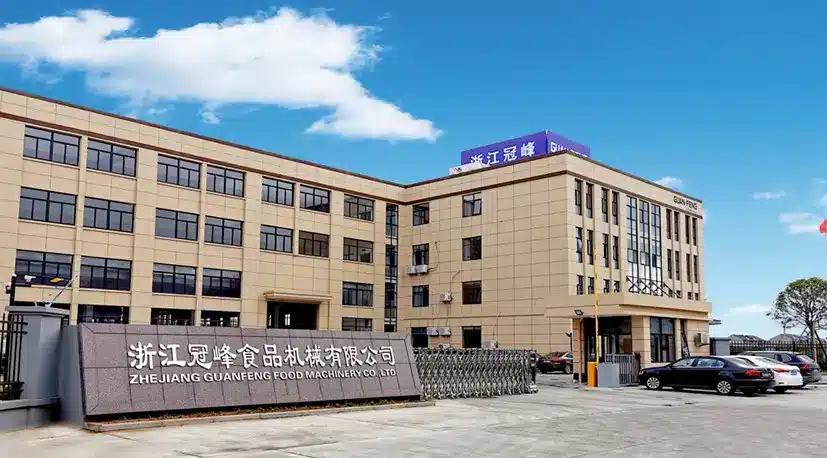BLOG
Focus on hot topics, real-time dynamics
Unlocking the Potential of Freeze Dryers in Food Processing
Freeze drying, or lyophilization, is a revolutionary technique in food processing that has gained prominence for its ability to preserve food while maintaining its nutritional value, flavor, and texture. Utilizing a freeze dryer for food processing allows producers to remove moisture from food products without causing damage to their cellular structure. This method is increasingly recognized for its efficiency and effectiveness in creating long-lasting, high-quality food products.
The fundamental principle of freeze drying involves freezing the food item and subsequently reducing the surrounding pressure to allow the frozen water in the food to sublimate directly from ice to vapor. This process eliminates the need for liquid water, which can often lead to spoilage and degradation of quality in traditional drying methods. By employing a freeze dryer for food processing, manufacturers can achieve a moisture content of less than 5%, which is essential for extending the shelf life of food products.
One of the key advantages of using a freeze dryer is the preservation of key nutrients. Traditional dehydration methods often lead to the loss of vitamins and minerals due to exposure to heat. However, with freeze drying, the low temperatures used during the process maintain the integrity of essential nutrients, making it a preferable option for health-conscious consumers. This capability is particularly beneficial in industries producing organic foods, pharmaceuticals, and emergency rations.
In addition to nutritional preservation, freeze-dried foods are lightweight and compact, making them ideal for transportation and storage. This factor has made freeze-dried products popular among outdoor enthusiasts, military personnel, and emergency preparedness sectors. The convenience of rehydrating freeze-dried foods with water quickly and easily adds to their appeal, allowing for quick meal preparation without compromising on taste or quality.
Moreover, the versatility of freeze dryers extends beyond just fruits and vegetables. This technology can be applied to a wide range of food products, including meats, dairy, and prepared meals. The ability to customize the freeze-drying process for various food types can enhance product offerings and open new market opportunities.
As the demand for high-quality, shelf-stable food continues to grow, integrating a freeze dryer for food processing is becoming increasingly vital for businesses aiming to maintain a competitive edge. By investing in this technology, companies can ensure that they meet consumer preferences for convenience, quality, and sustainability in food products.
In conclusion, the use of freeze dryers in food processing not only enhances preservation but also contributes significantly to the quality and nutritional value of food products. As more businesses recognize the advantages of this technology, it is likely to play a crucial role in the future of food processing and preservation.
The fundamental principle of freeze drying involves freezing the food item and subsequently reducing the surrounding pressure to allow the frozen water in the food to sublimate directly from ice to vapor. This process eliminates the need for liquid water, which can often lead to spoilage and degradation of quality in traditional drying methods. By employing a freeze dryer for food processing, manufacturers can achieve a moisture content of less than 5%, which is essential for extending the shelf life of food products.
One of the key advantages of using a freeze dryer is the preservation of key nutrients. Traditional dehydration methods often lead to the loss of vitamins and minerals due to exposure to heat. However, with freeze drying, the low temperatures used during the process maintain the integrity of essential nutrients, making it a preferable option for health-conscious consumers. This capability is particularly beneficial in industries producing organic foods, pharmaceuticals, and emergency rations.
In addition to nutritional preservation, freeze-dried foods are lightweight and compact, making them ideal for transportation and storage. This factor has made freeze-dried products popular among outdoor enthusiasts, military personnel, and emergency preparedness sectors. The convenience of rehydrating freeze-dried foods with water quickly and easily adds to their appeal, allowing for quick meal preparation without compromising on taste or quality.
Moreover, the versatility of freeze dryers extends beyond just fruits and vegetables. This technology can be applied to a wide range of food products, including meats, dairy, and prepared meals. The ability to customize the freeze-drying process for various food types can enhance product offerings and open new market opportunities.
As the demand for high-quality, shelf-stable food continues to grow, integrating a freeze dryer for food processing is becoming increasingly vital for businesses aiming to maintain a competitive edge. By investing in this technology, companies can ensure that they meet consumer preferences for convenience, quality, and sustainability in food products.
In conclusion, the use of freeze dryers in food processing not only enhances preservation but also contributes significantly to the quality and nutritional value of food products. As more businesses recognize the advantages of this technology, it is likely to play a crucial role in the future of food processing and preservation.
Hot Tags:
Contact Us
E-mail:
sales@syguanfeng.com
Tel:
+86 15088506234
Address:
South Industrial Park of Dongguan, Shangyu District, Shaoxing City,Zhejiang Province,China.
GUANFENG, your customization experts!
GUANFENG FOOD MACHINERY - leading supplier of integrated food processing solutions
Copyright© 2024 ZHEJIANG GUANFENG FOOD MACHINERY CO.,LTD.










